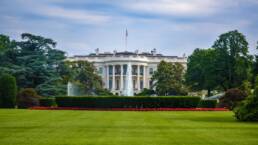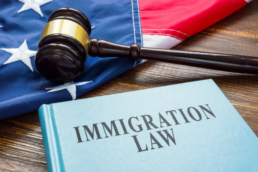On March 9, 2021, the Supreme Court agreed to a Biden administration request to dismiss an upcoming case challenging the Trump administration’s highly contested “public charge” rule. This means the Biden Administration has officially closed the chapter on the Trump-era Public Charge rule.
Under the Public Charge Final Rule, the Trump administration expanded the application of the public charge ground of inadmissibility to unprecedented levels never seen in the administration of U.S. immigration laws. This effectively limited access to green cards for those deemed likely to accept public assistance.
This rule has been tied up in litigation for years, challenged by numerous states and advocacy groups. Several appeals, brought by the Trump administration, were pending with the Supreme Court. However, consistent with Executive Order 14012, mandating a review of the Public Charge Final Rule by the Department of Homeland Security (“DHS”), the agency announced it will no longer pursue appellate review of judicial decisions invalidating or enjoining enforcement of the 2019 Public Charge rule.
As a result, the Department of Justice (“DOJ”) filed a joint motion to dismiss the petition for certiorari in the Supreme Court, as well as joint motions to dismiss appeals in various Circuit Courts (including the 2nd, 7th, and 9th Circuits), all of which have been granted.
More importantly, DHS announced the 1999 interim field guidance on the public charge inadmissibility provision (i.e., the policy that was in place before the 2019 Rule) will apply. Under the 1999 interim field guidance, DHS will not consider a person’s receipt of Medicaid (except for Medicaid for long-term institutionalization), public housing, or Supplemental Nutrition Assistance Program (SNAP) benefits as part of the public charge inadmissibility determination. In addition, medical treatment, or preventive services for COVID-19, including vaccines, will not be considered for public charge purposes.
This update has also been reflected on the U.S. Citizenship and Immigration Services (“USCIS” website, where they state “[o]n or after March 9, 2021, applicants and petitioners should not provide information required solely by the Public Charge Final Rule.” This means, applicants for adjustment of status do notneed to submit the burdensome 18-page Form I-944, Declaration of Self Sufficiency, or any evidence or documentation required by Form I-944 when they file their Form I-485.
If an applicant had already provided such information, and USCIS adjudicates the application on or after March 9, 2021, USCIS will not consider any information provided that relates solely to the Public Charge Final Rule. If an applicant received a Request for Evidence (“RFE”) or Notice of Intent to Deny (“NOID”) requesting information that is solely required by the Public Charge Final Rule and the response is due after March 9, 2021, the applicant does not need to provide that information. However, the applicant does need to respond to the aspects of the RFE or NOID that otherwise pertain to the eligibility for the immigration benefit you are seeking.
This is great news for noncitizens who may have been hesitant to pursue their green card while the burdensome 2019 Public Charge rule was in place. If you are now ready to take that first step towards securing your green card, be sure to contact Berardi Immigration Law to schedule a consultation with one of our attorneys today!
Ready to have Berardi on your side?
Whether you’re a business looking to hire or a professional hoping to relocate, immigration law can be complicated. But you don’t have to do it alone. Put our experience to work for you.



